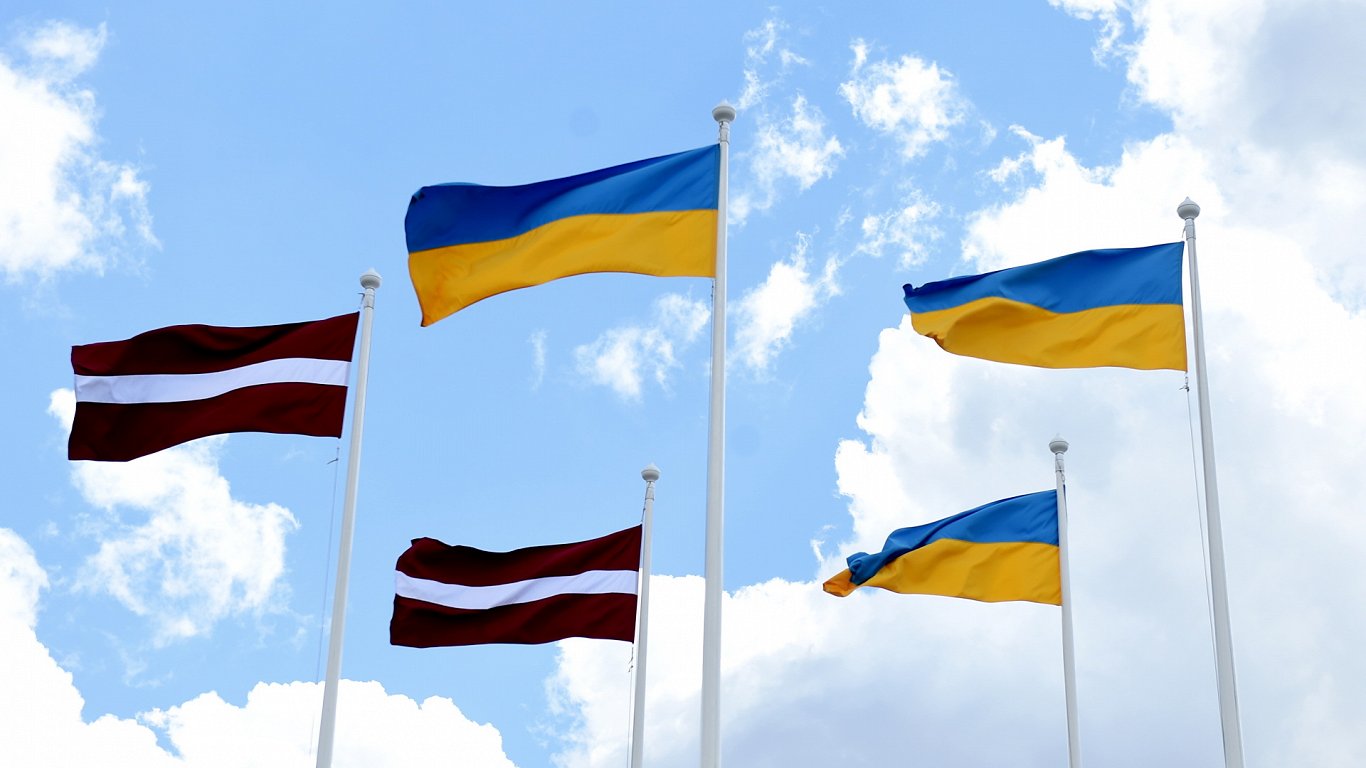The survey was carried out on 1,396 residents of Latvia aged 18 to 80 in June 2022, of which 691 were Russian-speaking.
Asked to indicate their attitude toward the Russian actions in Ukraine, 73% of respondents indicated that they condemn it (of those, 65% strongly condemn), 13% were neutral, 5% supported it (of which 2% strongly supported it).
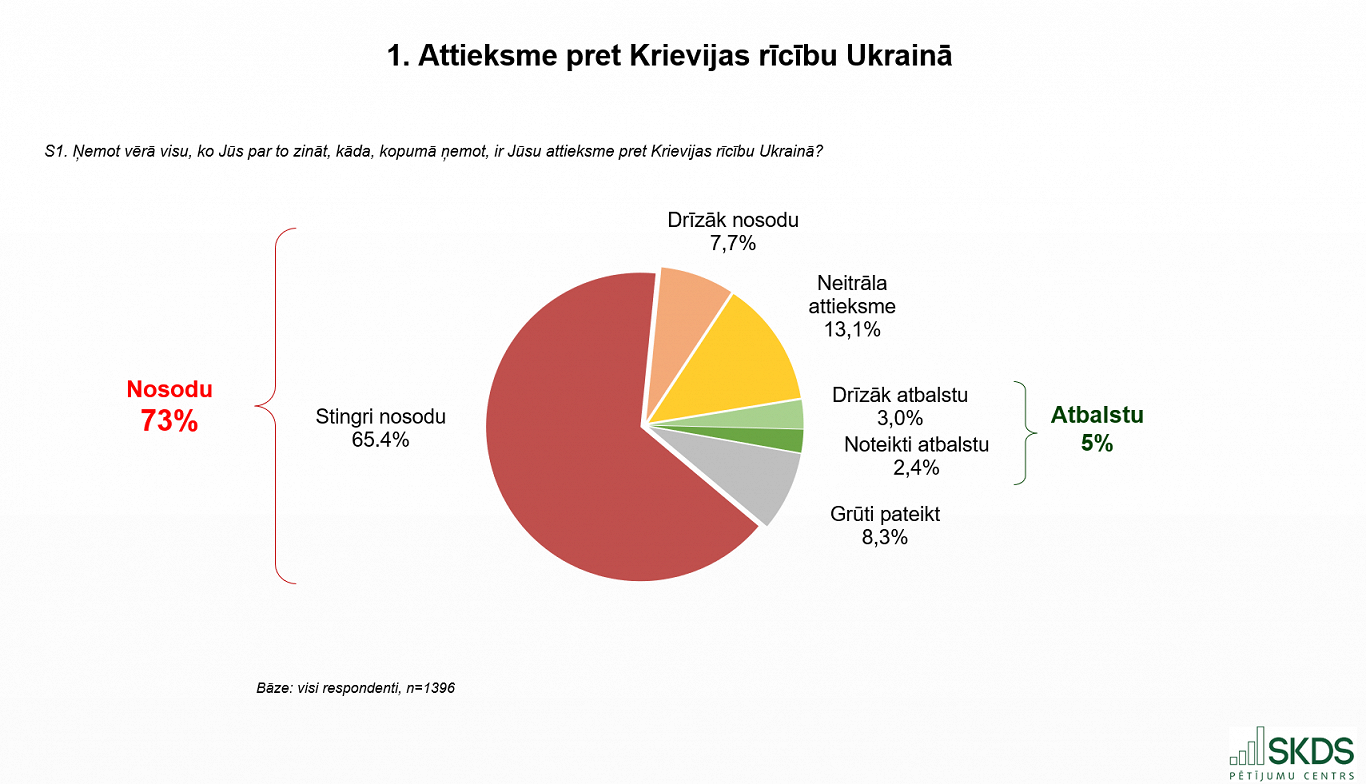
Of the Russian-speaking respondents, only 40% condemned the Russian invasion of Ukraine, 12% supported it, whereas 28% were neutral. 19% of the respondents did not answer the question.
In the spring, SKDS asked the question in different terms: which side do the respondents support. Data show that the proportion of those Russian-speaking residents supporting Russia has diminished. The number was 21% in the beginning of March, 20% in the second half of March, and 13% at the end of April. The proportion of those supporting Ukraine grew accordingly.
The Russian-speaking residents who were more likely to condemn the invasion were aged 18 to 34, had higher education, were citizens of Latvia, had medium to high incomes, as well as were inhabitants of Kurzeme. Support for Russia was expressed more often by males, respondents aged 55 to 63, those without Latvian citizenship, rural residents, those working in the private sector, and having medium income.
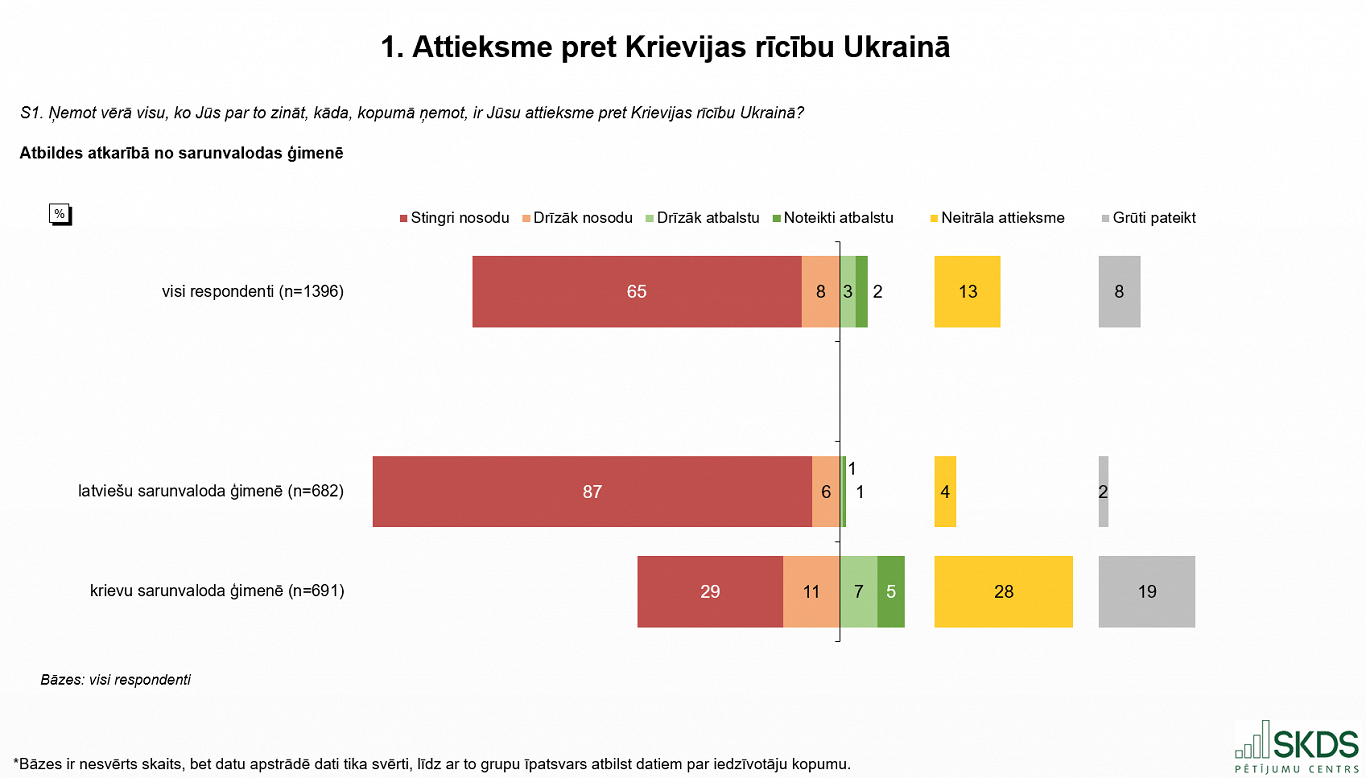
Asked whether the respondents support the decision to dismantle the Soviet 'Victory' monument, 49% supported it, 25% did not support it. Among Russian speakers, only 9% supported it, 55% definitely did not support, 21% rather did not support it. Among the Latvian speakers, 72% supported the dismantling of the monument, 10% were against it.
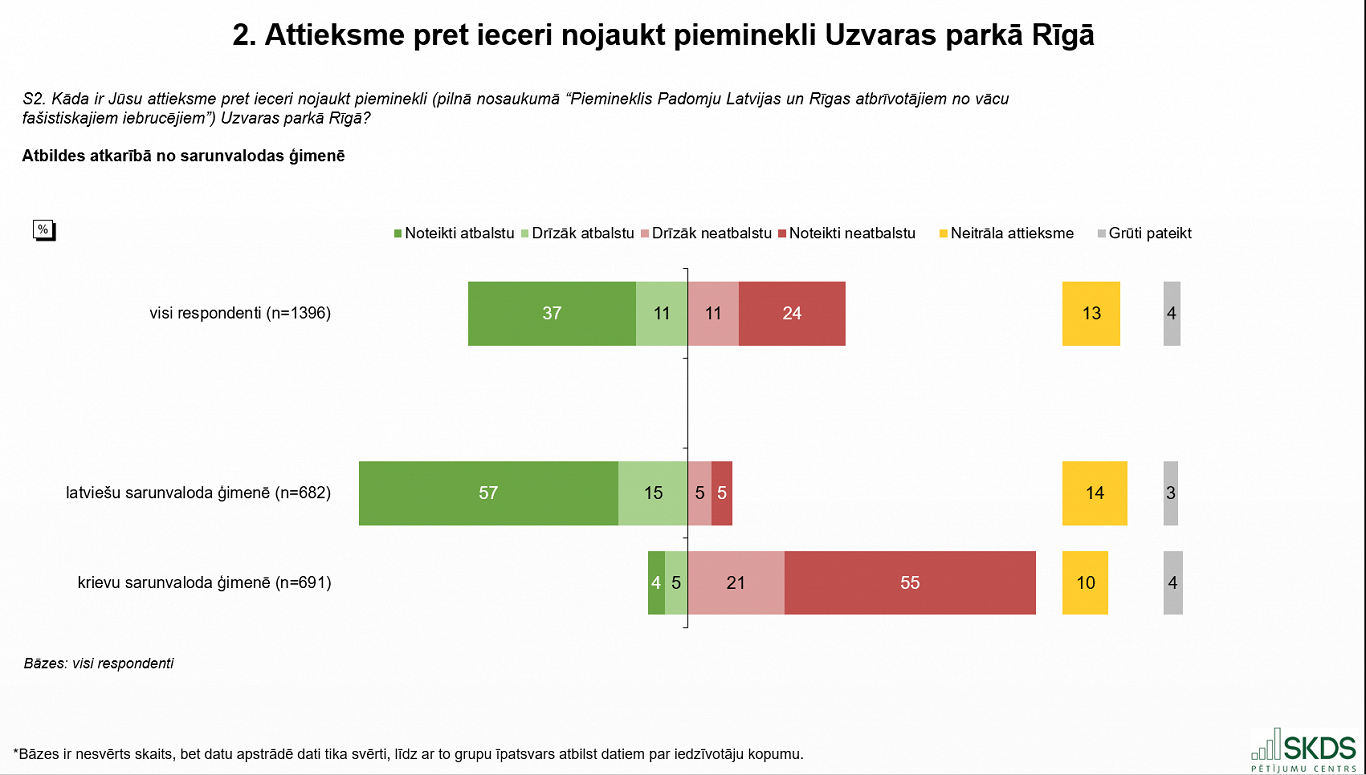
Of all respondents who condemn the Russian invasion of Ukraine, 66% also support the dismantling of the monument. Among the Russian speakers who condemn the war, 60% were still against the dismantling of the monument.
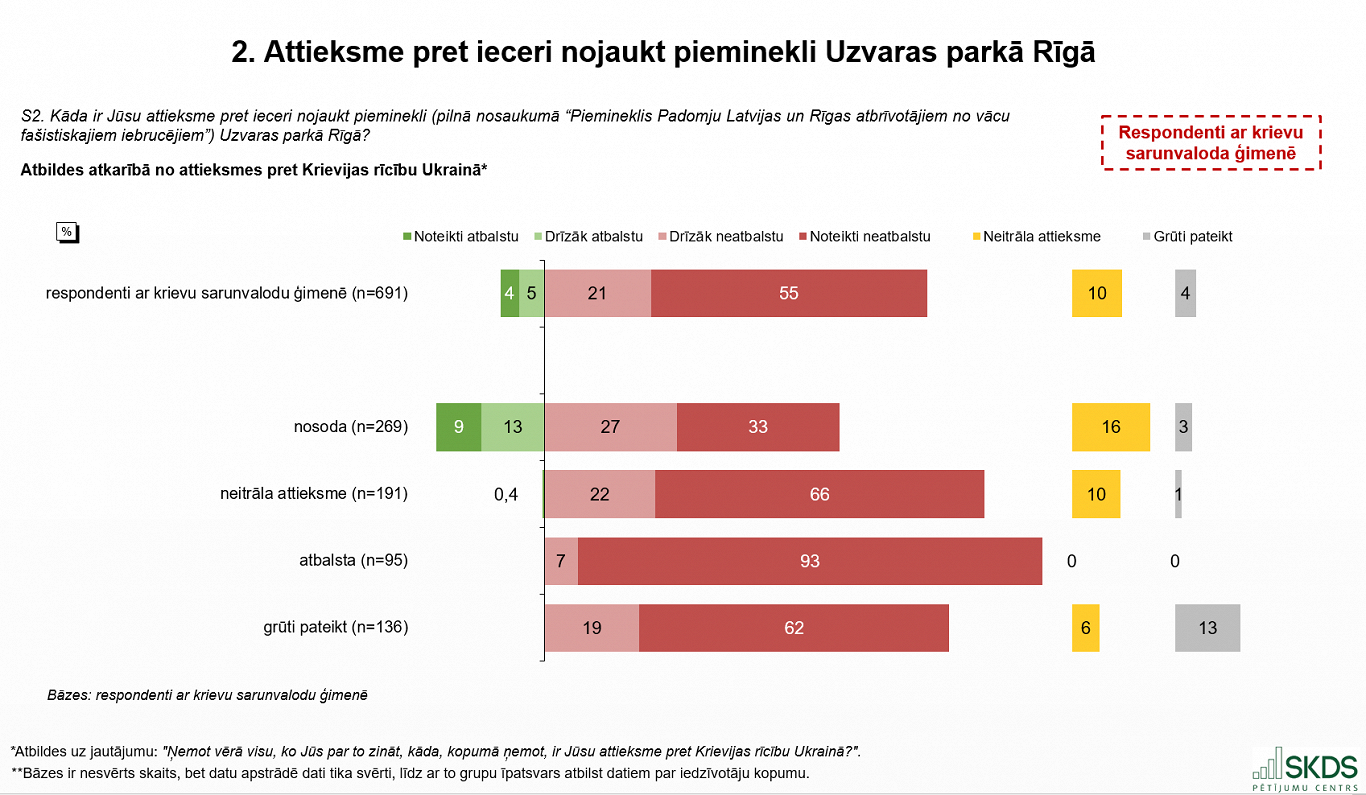
Asked what emotions they feel when hearing about May 9 in context of World War II, 25% of the respondents said they have positive associations, 40% had negative associations, 31% were neutral. Only 3% of Latvian speakers had positive emotions in this respect, whereas 62% of Russian speakers had positive emotions.
SKDS Director Arnis Kaktiņš said that the survey results once again show the polarized society of Latvia.
"It is not new after all. We knew long ago that the society was split [regarding the Russian invasion of Ukraine]. Now we see in terms of percentage how deep this gap is. A new thing is the attitude toward the monument. In this respect, the society is more than drastically split," said Kaktiņš.
Kaktiņš also indicated the difference between Latvian and Russian-speakers in avoiding responses. Only 2% of Latvian speakers did not answer, whereas among Russian speakers it was 19%. "There must be real serious reasons why you don't want to say anything," said Kaktiņš.
